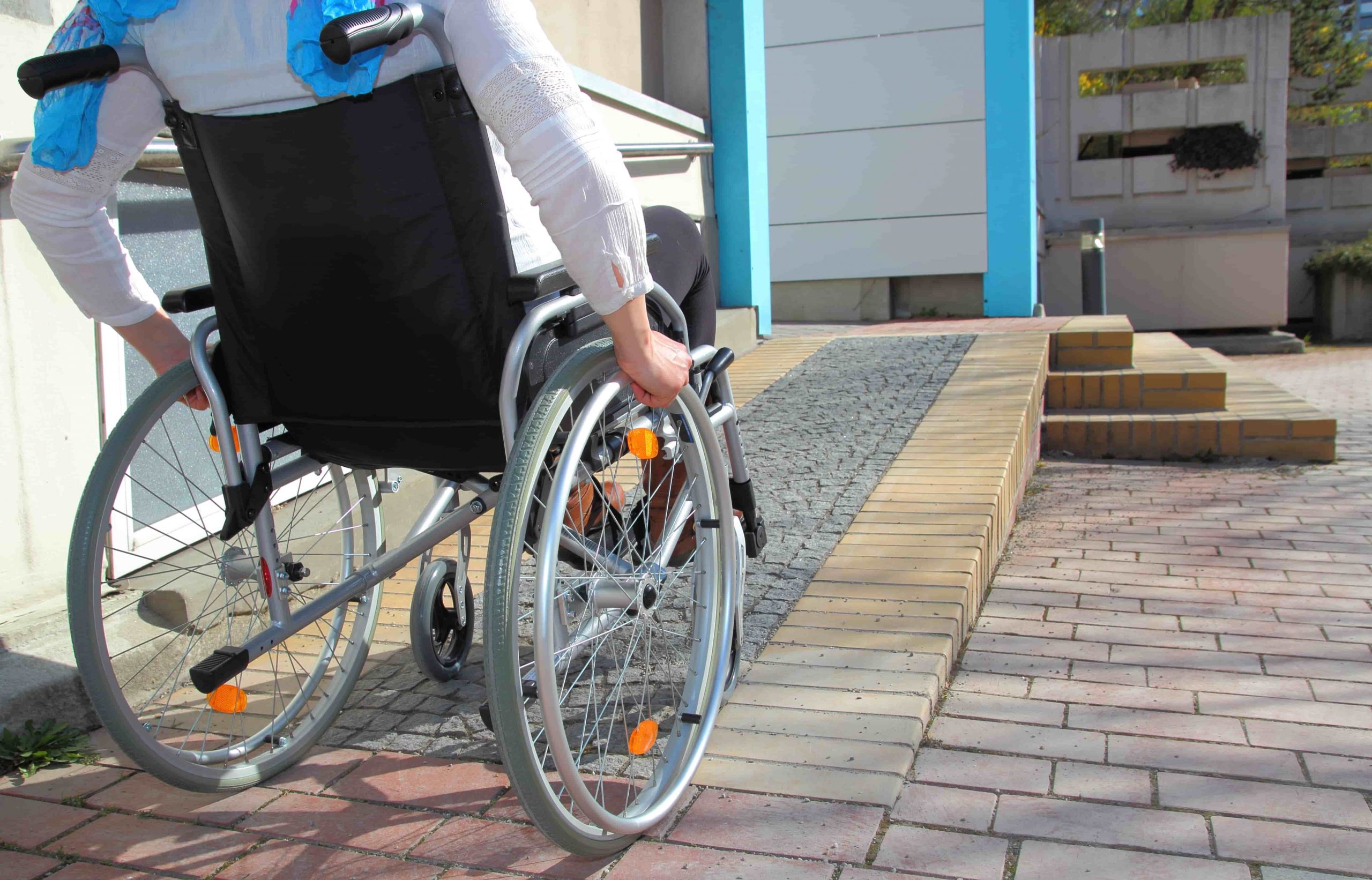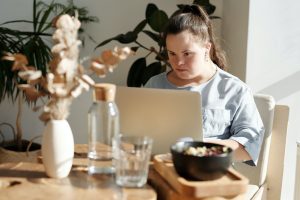
21 May Why the end of lockdown must not mean the end of accessibility for disabled people
Every step towards accessibility for disabled people has historically been the result of a long-term fight for equality. Many non-disabled people are unaware of these kinds of struggles even though a fifth of the total population of the UK is disabled in some way.
This equates to around seven million people, all living with some form of disability, and all struggling with accessibility to everyday life. Of course, this disabled population is very diverse and deal with different issues. But one thing unites pretty much all disabled people in the UK and that is accessibility. Whether this refers to physical accessibility into buildings or around town, or to less immediately obvious accessibility barriers, it’s always been a big problem.
How lockdown moved the accessibility goalposts
The truth is we live in an ableist society, which is designed to function primarily for non-disabled people. Thousands of disabled people in the UK say they feel excluded from activities that are considered important by the population as a whole. Their battle to attend gigs, to get the education they want or land the job they’re capable of is largely invisible to the able-bodied community.
And then came COVID-19. If we think of a live music gig as an example and consider life before the pandemic for a person living with autism. Perhaps they find the close contact of a live music concert too much to deal with or are forced to miss gigs because of sensory overload. This is the scenario depicted by an autistic writer in this Guardian article from 2019. They describe their accessibility issues and suggest a number of relatively simple adjustments that could be made.
Much like other suggested adjustments, they were immediately considered by readers to be impossible, unrealistic and asking for too much. This is a refrain familiar to disabled people asking for better accessibility – that it’s just not feasible.
But COVID-19 shows that the opposite is true if the will to make changes is there. Lockdown forced venues and musicians to find alternative ways to get people to attend their gigs. This meant shifting online to performances that are fully accessible by literally everyone with an internet connection. Suddenly, disabled people benefited from accidental accessibility and were able to attend all kinds of performances they were previously locked out of.
While able bodied people may regard online access to gigs and concerts, education and jobs as a temporary measure due to the pandemic, for some disabled people they have become a lifeline. For the first time in living memory, disable people weren’t the only people restricted from accessing whatever they wanted at any time they wanted. Instead, everyone was forced to stay home due to an external force outside of their control.
The pandemic has been a leveler and a spotlight on inequality
In this way, COVID-19 has been a leveler of sorts. But there are also enormous inequalities thrust into the spotlight due to the pandemic. For example, disabled people account for 60% of all COVID linked deaths in England even though they’re in the minority.
And, of course, we need to remember that none of these accidental shifts towards better accessibility during the pandemic were instigated for disabled people. Rather, they were the result of the whole country putting their creativity and flexibility into practice for the general population. Disabled people benefited by accident, as a side effect of the moves to make the world accessible for able bodied people.
This tells us, perhaps, that accessibility has always been within our grasp but that the world didn’t consider the plight of disabled people enough of an incentive to make the necessary changes. It tells us that accessibility is full possible and that if there is enough mainstream reason to do so, businesses and entire sectors will do whatever it takes to make it happen.
Now that the UK is starting to move out of lockdown, the future is uncertain for disabled people once again. Will the online accessibility to education, online courses, jobs, remote working, entertainment and live streamed gigs all stop when the world gets back to ‘normal’?
What about the disabled people who have been selected for the job of their dreams based on remote working? Does returning to normal mean that they will be expected to go to the office or lose their job? I’d like to assume that companies will continue some kind of remote working policy where it makes sense, but this is far from certain.
What will happen in workplaces when the lockdown is fully lifted?
Obviously, not all disabled people want to work remotely, and I know that many will be glad to return to their face-to-face job roles. But many do find commuting and in-office work exclusive to able bodied people or at least to other disabled people with different needs.
We don’t know quite yet when workplaces will reopen fully, or whether this will mean the end of remote working. There has been discussion from both sides in the media, with some businesses making it clear they want employees back in the office as soon as possible. Others, such as Segro recently announced its new Agile Work Policy that will give employees the choice of whether they work in-house or remotely.
I hope we see this across the board, with businesses being open to the needs of disabled people after lockdown. But this shouldn’t be left to individual companies. The Government must adopt an inclusive new normal that officially supports the disabled community. And if this means continuing with a hybrid remote working policy, then that’s what should happen.
To provide so much more inclusivity for disabled people previously locked out of the traditional workplace, and then to remove it arbitrarily, would not only be short-sighted but also unnecessarily discriminatory.
We know from history that hard won accessibility for disabled people can be ripped away at any point by a society that still somehow doesn’t understand. And this must not happen after the pandemic has receded.

Rouzbeh Pirouz is Co-Founder and Senior Partner at London-based Pelican Partners, a real estate and private equity investment firm. On this website you can find out more about his life, work and experience.





